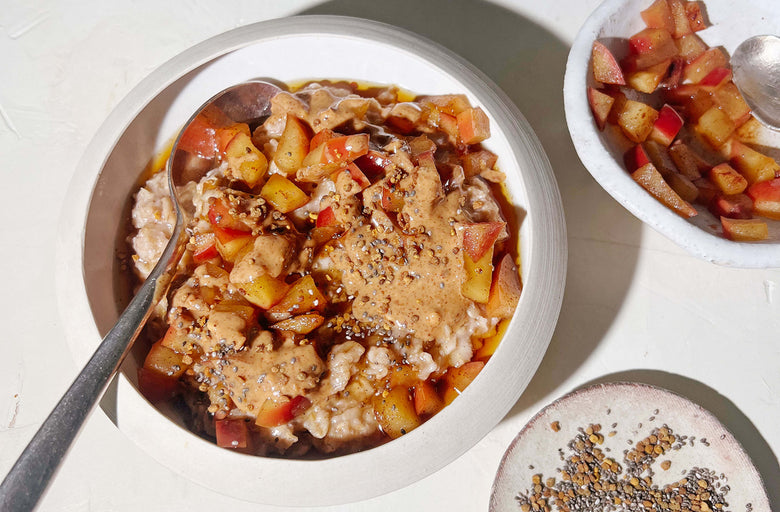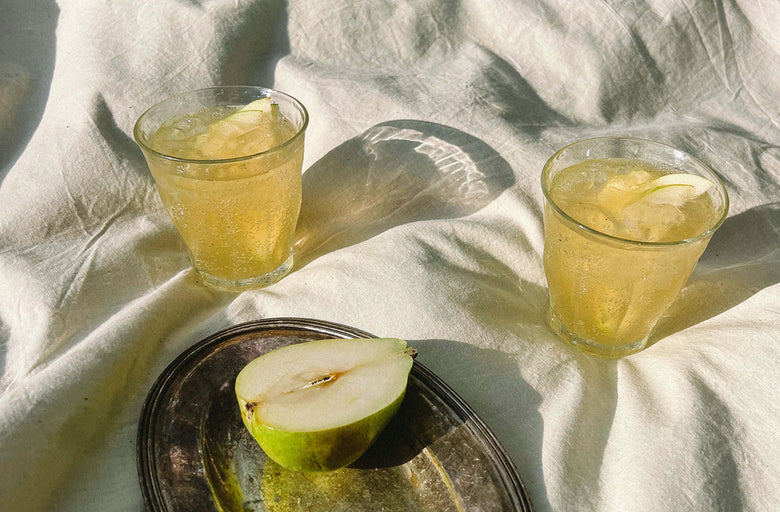
Dr. Gerry Curatola is an internationally recognized biologic dentist with more than three decades of experience as a clinician, researcher, educator, author and humanitarian. In addition to holding multiple patents and trademarks for his pioneering research on the oral microbiome, Dr. Curatola is the Founder and Director of Rejuvenation Dentistry and Founder, CEO and Chief Science Officer of Revitin Life Sciences.
Like skin, hair, mood, and digestion, your mouth is a direct reflection of your greater health and well being. If there is one person that understands this synergy, it is Dr. Gerry Curatola, a biologic restorative dentist with over three decades of clinical practice experience and 20 years of studying the oral microbiome, the second-largest and diverse microbiota after the gut. “The mouth is a gateway for everything that is going on in the body,” says Dr. Curatola noting that a condition like gum disease naturally leads to larger inflammation issues in your system. We sat down with the pioneering dentist to learn about the crucial link between mouth and microbiome and the value of a holistic approach to oral care for your overall health and wellness. (Spoiler: Take care of your teeth and gums and they will reciprocate.)
Can you explain the oral microbiome and how it relates to our overall health?
The oral microbiome refers to the vast microbial ecology in the mouth and entire oral cavity. It consists of more than 800 species of microbes isolated so far, and estimated to be 6-10 billion in number. This unique community of mostly bacterial organisms is actually an intelligent, semipermeable membrane that performs vital functions to help keep our mouths and bodies healthy. These functions include transporting ionic minerals from saliva to the surface of teeth to aid in remineralization, carrying molecular oxygen to the gums and soft tissue, and also eliminating free radicals and other waste products from the tissue surface. However, in addition to these important functions, the oral microbiome plays a vital role in protecting us from harmful environmental organisms, including harmful viruses, such as COVID-19, and it is intimately connected to the proper healthy function of our immune system. Recent studies have shown that imbalanced oral-derived bacteria can also colonize the intestines and persist there, leading to activation of the intestinal immune system, and chronic inflammation and dysregulation of the immune system.

What causes an imbalance in the oral microbiome?
Constant disturbances to this essential ecology in the mouth can cause the oral microbiome to be in a continual state of imbalance. Disturbances can include harmful oral-care products, a diet high in refined carbohydrates and sugar, a low pH in the mouth, and stress. Many oral-care products were developed by the major soap manufacturers over a hundred years ago. They are detergent-based and include many chemicals that are tough on the microbiome. Our focus for the past fifty years has been on eradicating this microbial community, viewing bacteria as “invaders” that should be “killed on contact.” Even many natural oral care products focused on “killing plaque” with natural essential oils like peppermint oil, tulsi oil and tea tree oil, which can be harmful and compromising to the important state of balance, or microbial homeostasis, in the oral microbiome.
what I am promoting could be compared to organic gardening in the mouth!
How can you tell if you have an oral microbiome imbalance?
When the oral microbiome is compromised or imbalanced, it often appears in the mouth as a "thick, sticky, and smelly film," which is commonly observed as the off-white plaque film on your teeth in the morning. Often this repetitive formation results from constant disturbances of the oral microbiome. Symptoms that often signal an imbalanced oral microbiome include bad breath, bleeding gums, and frequent tooth decay. Each of these symptoms is a sign of an imbalance that is connected to the microbiome being too thick, called a hypertrophic biofilm. An imbalance can also show up as an atrophic biofilm, which means it’s too thin. This results in mouth ulcers and sensitive teeth. It is also important to note that in the human microbiome there is no such thing as “good bacteria” and “bad bacteria.” Rather, it’s just bacteria that behave well (probiotics), or those that behave poorly (pathogens), depending on the condition of their “terrain” or community at large. For example, a number of species of bacteria in the mouth associated with tooth decay and gum disease behave totally benign in a balanced oral microbiome.
What is the importance of natural oral care and what led you to develop Revitin?
A number of years ago, I appeared on The Martha Stewart Show and was asked by Martha about my ongoing oral care research, and why it was necessary to take a new approach in oral care. I explained that, based on the emerging science from The Human Microbiome Project that was funded by the NIH in 2002, it’s become very clear that our past antibacterial and antibiotic approaches in oral care, even natural approaches, were not only ineffectual, but harmful to the essential microbial communities that perform vital functions and even keep us alive. My favorite sound bite from that show was when I said, “Martha, it's time for doctors to get out of the pesticide business, and what I am promoting could be compared to organic gardening in the mouth!” That has been my emphasis from the early development of Revitin and the remarkable results we were observing in our clinical research studies.
How big a role does nutrition play for your oral microbiome?
Good nutrition and a healthy diet can be compared to the type of "gas you put in the tank," and plays a key role in promoting a balanced microbiome. This is why I consider Sakara nutrition and Revitin perfect together for oral health. In my book, The Mouth-Body Connection, I share what I call, the "Triple A” characteristics of optimal nutritional support for oral health. This is a diet that is alkalizing, antioxidant-rich and anti-inflammatory. In a 2016 study in The Journal of Clinical Nutrition, Saturated fatty acids (SFAs) and Vitamin C intakes were consistently correlated with a robust healthy oral microbiome. Vitamin C, the B vitamins and vitamin E also exhibited positive correlations with a larger and healthier diversity of the oral microbial flora making it more resilient to disturbances. One of the earliest studies which I came across in my research that began over 15 years ago, was a clinical research study from Japan that biopsied diseased gum tissue in patient subjects. The study found a notable deficiency of two key nutrients, Vitamin C and Coenzyme Q-10, in the diseased tissue. Along with a colleague from my dental school days, Dr. David Shuch, this prompted our pioneering research which looked at restoring nutritional deficiencies in the mouth through the use of natural, orally absorbable nutritional formulations. Our initial key active ingredients included Vitamin C, Coenzyme Q-10, and Vitamin E. We were astonished at the rapid response of the gum tissue back to health. This ongoing research resulted in our being awarded three U.S. Patents for the specific combinations of Vitamin C and Coenzyme Q-10 as our principal active ingredients in our Revitin oral care formulations. This was followed by developments that continued to add prebiotic ingredients, additional vitamins. These include Vitamin D3 and Vitamin K2 (MQ7) that assist with calcium metabolism and reduce inflammation along with essential oils that do not disturb the microbial flora but help to restore balance.
Are there other healthy habits you recommend to keep a balanced oral microbiome?
The most essential healthy habits to keep a balanced oral microbiome are many of the same habits for a healthy mind and healthy body as well. Besides nutrition which we discussed, these include:
- Regular healthy exercise
- Stress management
- Eliminate dental toxicity safely (especially from amalgam mercury-containing fillings, failing root canals, and BPA-containing tooth colored plastic fillings)
- Get healthy sleep and eliminate any obstructive sleep apnea (OSA)
- Avoid the use of harmful oral care products (detergents, antimicrobials and chemicals like xylitol and fluoride).
The active ingredients, Vitamin C, Coenzyme Q-10, and Vitamin E...we were astonished at the rapid response of the gum tissue back to health.
Do face masks pose a threat at all?
One of the most recent hazards to keeping a healthy balanced oral microbiome is the mandatory use of a face mask, which has resulted in a dramatic spike in oral microbiome related issues including higher rates of dental caries, gum disease, halitosis (bad breath) and xerostomia (dry mouth). These are all related to microbiome related imbalances. Revitin is the “perfect antidote” for mask mouth to ensure continued safe wear of a face mask as mandated by state and federal authorities. P.S. Wear a mask!
EXPLORE MORE ON SYSTEM-WIDE VITALITY
6 Ways to Detox Your Self-Care Routine
Vitamin D: The Sunshine Vitamin and Why You (Probably) Need More






